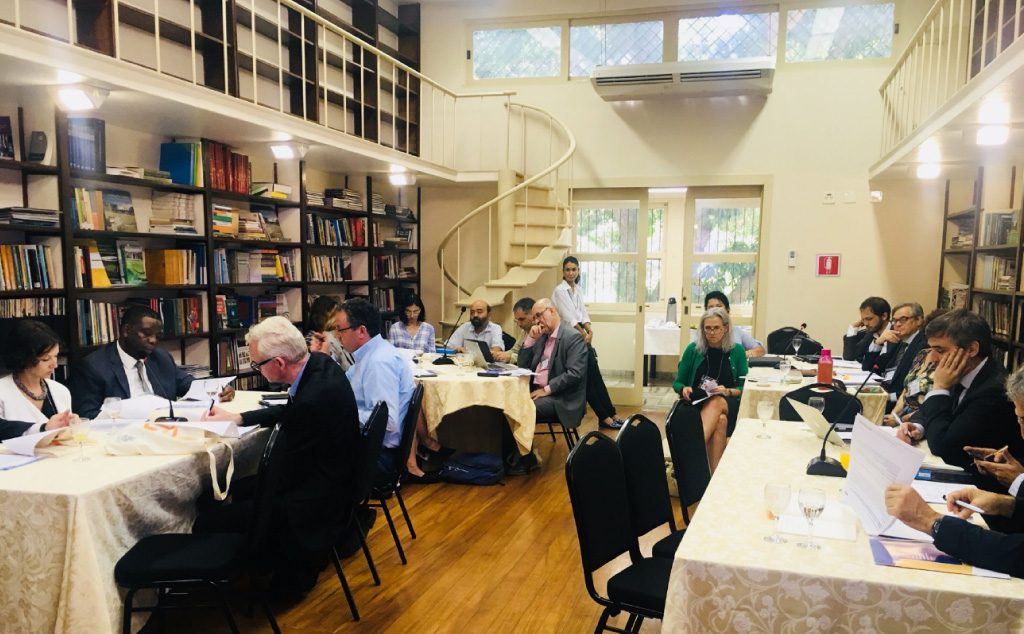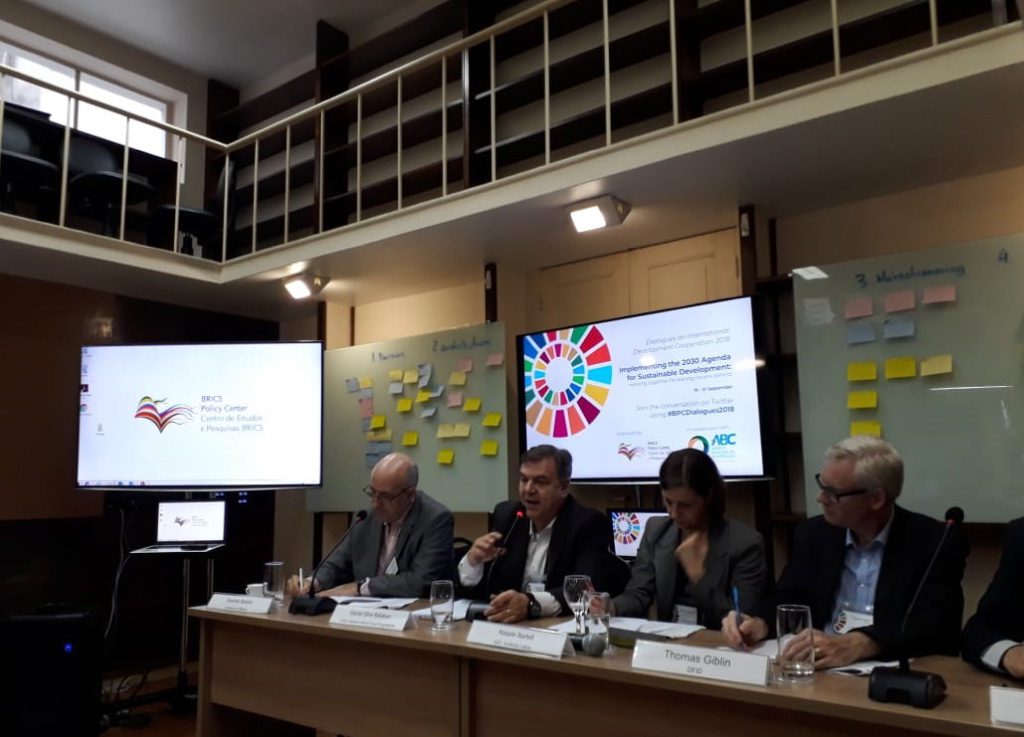
The WFP Centre of Excellence against Hunger participated in the “Dialogues on International Development Cooperation – 2018”, event organized by the BRICS Policy Center in partnership with the Brazilian Cooperation Agency. The event intended to feed into the Second High-level United Nations Conference on South-South Cooperation process, known as BAPA+40, that will take place next year. Discussions focused on international development cooperation within the broader context of the Sustainable Development Goal 17, which pertains to the needed partnerships to achieve the goals.
The event happened in Rio de Janeiro, on 19 – 21 September. International development cooperation is at the forefront of the intensive mobilization and implementation efforts required by the 2030 Agenda. Participants included key stakeholders in government, international organizations, CSOs, think tanks and academia. They examined some of the types and modalities of international development cooperation and their contributions to the 2030 Agenda.
Daniel Balaban, director of the WFP Centre of Excellence, participated in the panel “Mutual learning and follow-up”. He presented the added value of international organisations to trilateral cooperation initiatives. “With support from the WFP Centre of Excellence, over 20 countries have designed school feeding policies inspired by the Brazilian successful school feeding programme”, he said.

Another topic discussed during the event was the engagement of the private sector into the global efforts to achieve the 2030 Agenda. The private sector is seen by many development partners as a vital actor in promoting sustainable development. “Blended (public and private funds) finance has mobilized $80 Billion. However, only 7 percent of the that amount reached the Least Developed Countries,” said Nadine Piefer, from the Organisation for Economic Co-operation and Development (OECD).
Mariana Rocha, programme policy officer of the WFP Centre of Excellence, participated in the panel “SSC experiences in addressing those further behind”. She explained how South-South cooperation on school meals is a means to achieve sustainability for the Sustainable Development Goal 2 – Zero Hunger. “Leaving no one behind means ensuring children have access to opportunities and good nutrition in all circumstances. School meals reach those further behind and support excluded children to access multiple benefits in nutrition and education,” she said.
In January 2017, the BRICS Policy Center hosted the first “Dialogues on South-South Cooperation” event to discuss Monitoring and Evaluation of South-South cooperation initiatives. It brought together SSC actors from twelve countries, as well as a significant number of Brazilian implementing agencies and international organizations. The event contributed to the establishment of a platform for multi-stakeholder conversations and learning on issues related to the implementation, results and evaluation of South-South and Trilateral Cooperation.




